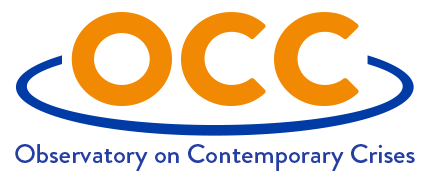At the beginning of 2020, Spain was still on its slow recovery path from the 2008 financial crisis: GDP had recovered and deficits were in control, but unemployment and debt were still much higher than before the 2008 crisis. In 2019, the economy had grown by 2%, and Spain seemed to have almost fully recovered when the pandemic set in.
An increasingly worrying situation
According to the most recent report on social exclusion in Spain published by Fundación FOESSA – an organization that promotes the study of social relations and applied sociology-, the rates of social exclusion were improving in the period 2013-2018.
Social exclusion is an indicator that combines social, economic, and cultural factors such as insufficient income, material deprivation, unemployment or underemployment, political participation, isolation, exposure to abuse, health, education, and housing. This FOESSA report was carried out in collaboration with Caritas, the Catholic NGO that is a part of the Catholic Church, and it was the largest survey on social need in Spain. The 2019 report was very important in highlighting vulnerabilities among the Spanish population that are hidden when looking at income statistics alone.
Fundación FOESSA differentiates between moderate social exclusion and severe social exclusion. The former is the experience of some, but not all of the factors of exclusion, and the latter is defined by the simultaneous experience of inequality in housing, employment, and political participation. Both moderate social exclusion and severe social exclusion in Spain had improved in the period 2013 to 2018, dropping from 14.9% to 9.6% and from 10.8% to 8.8% respectively. Throughout Spain, the levels of integration vary between the autonomous communities: La Rioja, Cantabria and Asturias have the highest levels of integration, while the Canary Islands, Extremadura, and the Balearic Islands have the lowest levels of integration in the country. Interestingly, in the period 2013-2018, Madrid (Spain’s third largest autonomous community) saw the rate of moderate social exclusion fall from 10.8% to 7.4%, while the rate of severe social exclusion increased by 2% (from around 200,000 to 300,000 people total). This is likely related to the rise of income inequality in Madrid during the same period: the poorest fifth of society saw their incomes fall 30% and the richest fifth’s income rose 3%.
Will we learn from the pandemic?
In a talk given by Thomas Ubrich, a sociologist and researcher at Caritas, in October 2020 at Saint Louis University-Madrid, highlighted that it is housing, not income, that is currently the largest producer of social exclusion in Madrid. This includes housing that is both insecure (without a lease, under threat of violence, with notification of eviction) and inadequate (housing that does not meet the adequate conditions of habitability, overcrowding, without access to supplies). Then the second largest contributor to social exclusion is employment, where temporary and part-time work create precarity.
While it has been difficult to measure the effects of the ongoing pandemic on social exclusion, Caritas carried out a small study in May 2020 among families that receive their support. They concluded that COVID-19’s impact was visible in the increase of severe poverty, with the digital divide, the financial independence of households (3 in 4 households rely on some sort of support outside of their income), with health, and with the creation of a housing emergency. According to their estimation, there are 1 million people in Madrid who experience social exclusion; within that, there are 490,000 people experiencing severe social exclusion.
With the worsening pandemic, it is unclear what the Spanish society will look like in the future, and what new challenges will be uncovered if tourism and unemployment cannot recover. The only hope is that this period of crisis (which includes health, economic, and social sectors) and unraveling of society as we knew, could be used to develop a new model that responds to new needs of care.
Veronica Rose Chancy is a Master’s student at the department of Political Science and International Relations of Saint Louis University – Madrid Campus.
To quote this article, please use the following reference: Veronica Rose Chancy (2020),“Poverty Worsens in Madrid Amidst COVID-19 Pandemic”. https://crisesobservatory.es/poverty-worsens-in-madrid-amidst-covid-19-pandemic/
The OCC publishes a wide range of opinions that are meant to help our readers think of International Relations. This publication reflects the views only of the author, and neither the OCC nor Saint Louis University can be held responsible for any use which may be made of the opinion of the author and/or the information contained therein
